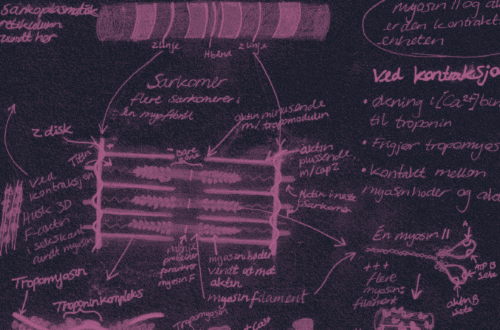Av Synne Marie Berge
Human rights as we know them today were recorded and implemented in the years following World War II and expanded upon up until today. These rights provide a framework to ensure that all citizens of the world have some basic rights regardless of their nation, language, religion, ethnic origin, sexual orientation or any other status. The trend that we are seeing today, with human rights under attack in many different arenas, is a development in the wrong direction.
We have seen the nationalistic breeze blowing over Europe become a storm in the US. Rhetoric and divisive language which was unheard of not long ago is now shown on prime-time television, and spread in social media like wildfire. Nationalism is on the rise in the West, very well demonstrated by Donald Trump’s slogan «America First». In France, Marine Le Pen’s national conservative political party National Front has been campaigning with a similar slogan – «Made in France». But by putting America or France first, human rights are being put second.
As an example, Trump’s Immigration Ban makes it impossible for refugees to seek asylum, a right that is enshrined in the Universal Declaration of Human Rights article 14. We’d be fools to think this cannot happen in Europe.
Human rights are built on the ideological foundation that all are of equal worth, and it cannot function in a vacuum where each country is responsible only for its own citizens. For this reason, it is particularly scary to see countries become increasingly unwilling to cooperate with each other to find solutions to world problems. Several places in the world we see little confidence in the international legal systems that are meant to ensure basic human rights: British Prime Minister Theresa May will campaign to leave the European Convention on Human Rights in the 2020 election; Burundi and South Africa want to leave the International Criminal Court, and war crimes are being committed in ongoing conflicts.
What we need is robust systems for international cooperation to prevent a decline in the observance of human rights. Unfortunately, what we see today is the opposite.
As social media – one of the main distribution channels for news – is becoming increasingly prevalent, the number of people the news reaches also grows larger. In the quest to reach as many as possible, as quickly as possible, news are being simplified. Inevitably, so are the solutions that are being presented.
We need to challenge these simplifications. Only with nuanced images can we achieve consensus and work against the downgrading of human rights. We must, through information and education, make people understand that simple short-term solutions – such as travel restrictions – can deprive people of basic fundamental human rights. Not only will the right to seek asylum be threatened; a travel ban may also affect the right to family life, right to education and the right to health – also basic human rights. If we gradually accept that human rights are being violated, what will finally remain?
Next year marks the 70th anniversary of the Universal Declaration of Human Rights, established in the wake of WW2. It must remain relevant and respected.
So what can you do? Speak up for the wrongs that are being committed; support nuanced media outlets. We all have a moral responsibility to stand up for what is right, especially when it is under pressure. A particularly heavy responsibility lies on those with legal knowledge, those who can speak up with some credibility when international legal institutions are under pressure. We must elect representatives who stand up for the world community and pursue policies that help support our institutions, not someone who breaks them down by putting themselves ahead of others.
Nationalistic and short-term solutions are too simple to solve the complex problems in today’s world.
![]()
Synne Marie Berge er frå Førde i Sogn og Fjordane, går masterstudiet i rettsvitenskap ved UiO, liker å lage mat, og er for tida praktikant ved FN-delegasjonen i New York.






